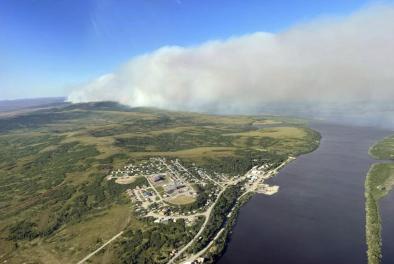The weakening summer circulation in the Northern Hemisphere mid-latitudes
Study key findings:
- Some key measures of atmospheric circulation in the Northern Hemisphere have weakened during the summer.
- This change has been caused by the reduction of the temperature difference between mid-latitudes and the North Pole.
- As summertime circulation has decreased in intensity, episodes of hot weather have become more persistent.
Study abstract:
Rapid warming in the Arctic could influence mid-latitude circulation by reducing the poleward temperature gradient. The largest changes are generally expected in autumn or winter, but whether significant changes have occurred is debated. Here we report significant weakening of summer circulation detected in three key dynamical quantities: (i) the zonal-mean zonal wind, (ii) the eddy kinetic energy (EKE), and (iii) the amplitude of fast-moving Rossby waves. Weakening of the zonal wind is explained by a reduction in the poleward temperature gradient. Changes in Rossby waves and EKE are consistent with regression analyses of climate model projections and changes over the seasonal cycle. Monthly heat extremes are associated with low EKE, and thus the observed weakening might have contributed to more persistent heat waves in recent summers.
Related Content





